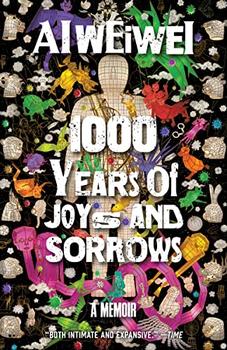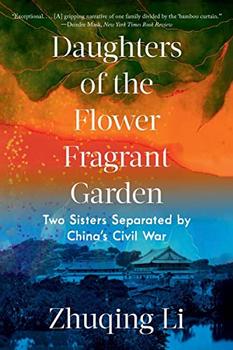Summary | Excerpt | Reviews | Beyond the book | Read-Alikes | Genres & Themes | Author Bio

A Memoir
by Ai WeiweiIn his widely anticipated memoir, "one of the most important artists working in the world today" (Financial Times) tells a century-long epic tale of China through the story of his own extraordinary life and the legacy of his father, the nation's most celebrated poet.
Hailed as "an eloquent and seemingly unsilenceable voice of freedom" by the New York Times, Ai Weiwei has written a sweeping memoir that presents a remarkable history of China over the last hundred years while also illuminating his artistic process.
Once an intimate of Mao Zedong and the nation's most celebrated poet, Ai Weiwei's father, Ai Qing, was branded a rightist during the Cultural Revolution, and he and his family were banished to a desolate place known as "Little Siberia," where Ai Qing was sentenced to hard labor cleaning public toilets. Ai Weiwei recounts his childhood in exile, and his difficult decision to leave his family to study art in America, where he befriended Allen Ginsberg and was inspired by Andy Warhol. With candor and wit, he details his return to China and his rise from artistic unknown to art world superstar and international human rights activist—and how his work has been shaped by living under a totalitarian regime.
Ai Weiwei's sculptures and installations have been viewed by millions around the globe, and his architectural achievements include helping to design the iconic Bird's Nest Olympic Stadium in Beijing. His political activism has long made him a target of the Chinese authorities, which culminated in months of secret detention without charge in 2011. Here, for the first time, Ai Weiwei explores the origins of his exceptional creativity and passionate political beliefs through his life story and that of his father, whose creativity was stifled.
At once ambitious and intimate, 1000 Years of Joys and Sorrows offers a deep understanding of the myriad forces that have shaped modern China, and serves as a timely reminder of the urgent need to protect freedom of expression.
We come to find that this book was born from Ai Weiwei's illegal detention and restriction of movement in 2011. Ultimately, it becomes clear that the real crime is his voice. As his life has represented an evolution of artistic and human expression, it was perhaps inevitable that it would become politicized. Upon experiencing this fundamental truth about the nature of individual expression against a larger collective that seeks to maintain a status quo, Ai Weiwei comes to realize that his struggle is not unique or singular. Instead, it was foreshadowed by his father's endeavors a lifetime ago, and will likely be echoed by his son and many others to come...continued
Full Review
 (803 words)
(803 words)
(Reviewed by Jennifer Hon Khalaf).
 Ai Weiwei is an influential creator, whose career has given rise to a great variety of works in many mediums. Accordingly, describing him merely as an artist does not do him justice, as he wears many hats, being a visual artist, architect, documentarian and writer. Ultimately, all of his work is underpinned with a strong thread of political activism, focusing primarily on the right of free expression in the Chinese cultural context.
Ai Weiwei is an influential creator, whose career has given rise to a great variety of works in many mediums. Accordingly, describing him merely as an artist does not do him justice, as he wears many hats, being a visual artist, architect, documentarian and writer. Ultimately, all of his work is underpinned with a strong thread of political activism, focusing primarily on the right of free expression in the Chinese cultural context.
Ai Weiwei started off as a conceptual modern artist, moving to the U.S. in 1981 and studying briefly at Parsons School of Design in New York City, where he was heavily influenced by Dadaism. He returned to China in 1993, where he continued developing his artistic style. Though some of his works were meant to ...

If you liked 1000 Years of Joys and Sorrows, try these:

Waiting to Be Arrested at Night
by Tahir Hamut Izgil
Published 2024
A poet's account of one of the world's most urgent humanitarian crises, and a harrowing tale of a family's escape from genocide

Daughters of the Flower Fragrant Garden
by Zhuqing Li
Published 2023
Sisters separated by war forge new identities as they are forced to choose between family, nation, and their own independence.